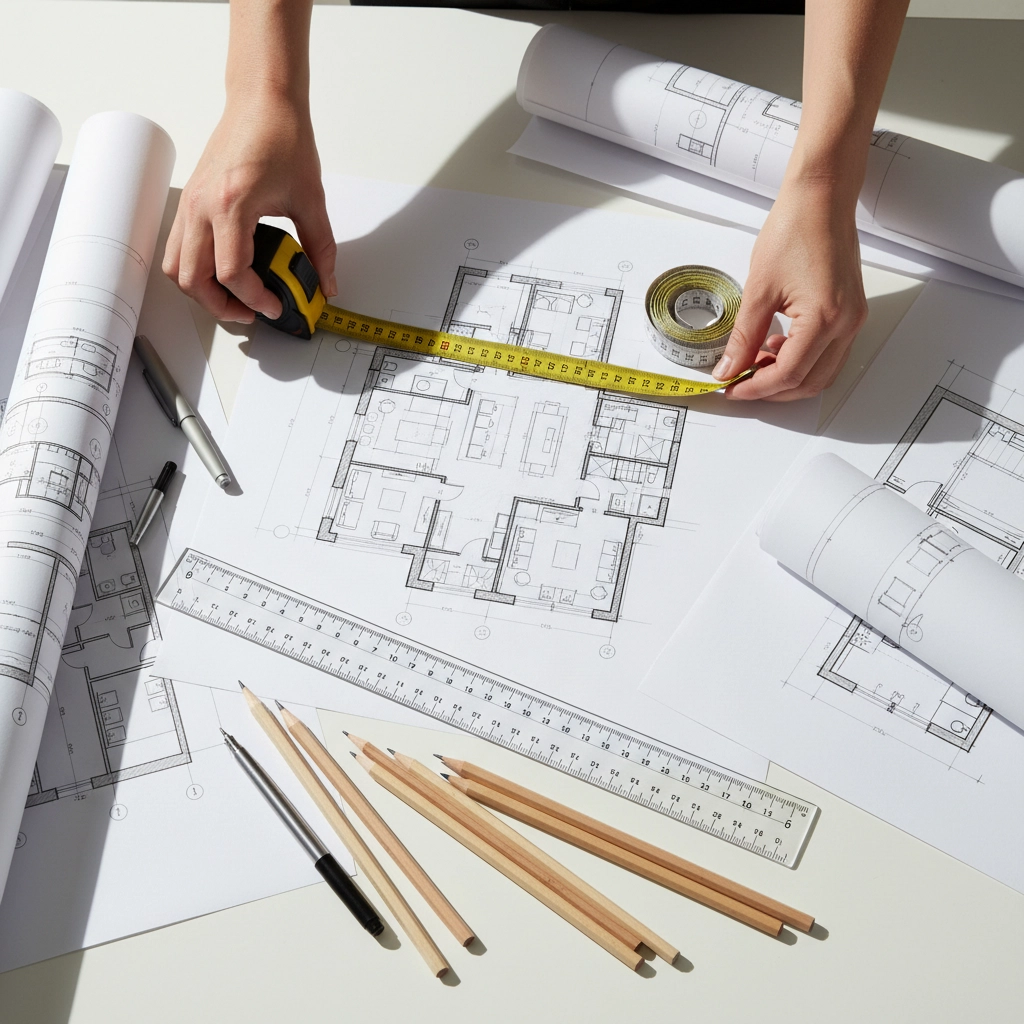The kids have flown the nest, and suddenly that four-bedroom house feels like a museum filled with memories and… a lot of stuff you don't really need anymore. If you're an empty nester considering downsizing in 2025, you're definitely not alone. With Baby Boomers owning more homes than any other generation and approximately 9 million homes expected to hit the market, this is becoming one of the biggest housing trends of the decade.
But here's the thing: downsizing isn't just about moving to a smaller space. It's about creating a lifestyle that fits who you are now, not who you were twenty years ago when you needed that extra bedroom for sleepovers and a basement for all those sports equipment storage needs.
Start With Your "Why" (It's More Important Than You Think)
Before you start boxing up decades of memories, take a step back and really think about why you want to downsize. Your motivation will be your compass when you're standing in your garage at 2 AM wondering whether you really need that exercise bike you haven't touched since 2019.
Common reasons empty nesters downsize include:
- Reducing maintenance headaches (no more weekend gutter cleaning!)
- Freeing up money for travel, hobbies, or just peace of mind
- Moving closer to family or healthcare
- Simply wanting less stuff to manage and clean
Whatever your reason, write it down. When the process gets overwhelming: and it will: having that clear "why" written somewhere will keep you motivated.

Create a Realistic Timeline (Spoiler: It Takes Longer Than You Think)
Here's what nobody tells you about downsizing: it's not a weekend project. Plan to start the process 6-9 months before you want to move. That might sound excessive, but trust us: you'll need every minute of it.
Your timeline should include:
- Months 6-9 before moving: Start decluttering and researching new communities
- Months 4-6 before: Get serious about selling/donating items and list your current home
- Months 2-4 before: Finalize your new home choice and arrange moving services
- Final month: Handle address changes, utility transfers, and last-minute details
Pro tip: Create a master checklist that includes all the administrative stuff: banks, insurance, subscriptions, doctor's offices. You'll be amazed at how many places have your address on file.
The Room-by-Room Game Plan That Actually Works
Decluttering your entire house can feel like trying to eat an elephant. The secret? Take it one bite (or room) at a time. Start with the easiest spaces to build momentum, then tackle the emotional stuff later when you're in the groove.
The winning order:
- Car and garage (easy wins to start)
- Living areas (you use these daily, so decisions are clearer)
- Bedrooms and closets
- Kitchen and bathrooms
- Home office and guest rooms
- Storage areas, attic, basement
- Sentimental items (save these for last when you're practiced at decision-making)
For each room, create three piles: keep, donate, and toss. Here's the key rule: deal with all three piles completely before moving to the next room. Don't let items migrate around your house without decisions being made.

Measure Twice, Move Once
Before you fall in love with that cozy manufactured home community, get realistic about space. Create a simple floor plan of your potential new home and sketch where your furniture will go. Measure your current furniture and compare it to the dimensions of your new space.
This exercise is an eye-opener. That king-size bed might need to become a queen. The dining table that seats eight might need to downsize to a four-seater. It's better to figure this out now than on moving day.
If you're considering manufactured housing as your downsizing solution, you'll find that modern manufactured homes are designed with smart storage solutions and efficient layouts that maximize every square foot.
The Emotional Side Nobody Talks About
Let's be real: downsizing isn't just about stuff. It's about letting go of a phase of life. That china set from your wedding, your kids' artwork from elementary school, the books you always meant to read again: these items carry emotional weight that has nothing to do with their practical value.
Here are some strategies that help:
- Take photos: Capture memories without keeping the physical item
- Pass it forward: Give meaningful items to your kids or grandkids who will appreciate them
- Keep the best, donate the rest: If you have a collection of something, keep 2-3 favorites and let the rest go to someone who will enjoy them
- Set limits: Designate one box for sentimental items and stick to it
Remember, you're not throwing away memories: you're making room for new ones.

Getting Your Financial House in Order
It's probably been a while since you've bought a home, and the process has changed. Start gathering your financial documents early: proof of income, tax returns, bank statements, and credit reports. If you're considering financing, understand that manufactured home financing works differently than traditional home loans, but there are excellent options available.
Also, be smart about the money side of downsizing. Calculate not just the purchase price of your new home, but the ongoing costs: utilities, maintenance, community fees, and property taxes. Many empty nesters find that the cost savings from downsizing free up money for the things they really want to do in retirement.
Finding the Right Community for Your Next Chapter
This is where the magic happens. Your new home isn't just about square footage: it's about finding a community that matches your lifestyle. Do you want quiet neighbors and a peaceful environment? Or are you looking for an active community with social events and amenities?
Manufactured home communities often offer the best of both worlds: quality homes with maintenance-free living and built-in community connections. Many are designed specifically with empty nesters in mind, offering amenities like clubhouses, walking trails, and organized activities without the high costs of traditional retirement communities.
The Final Stretch: Moving Day and Beyond
As moving day approaches, pack a "first day" survival box with essentials: medications, toiletries, change of clothes, phone chargers, and maybe a bottle of wine to celebrate. Set up your bedroom first so you have a comfortable place to sleep, then tackle one room at a time.
Don't try to recreate your old home in your new space. This is your chance to create something fresh that reflects who you are now, not who you were when you first bought all that stuff.

Embracing Your New Freedom
Here's what's waiting for you on the other side of downsizing: freedom. Freedom from maintaining more space than you need. Freedom from cleaning rooms you never use. Freedom from worrying about that leaky roof or broken furnace.
Many empty nesters find that downsizing gives them not just a smaller home, but a bigger life. With less time spent on maintenance and housework, you have more time for hobbies, travel, volunteering, or just enjoying lazy Saturday mornings without a to-do list.
Ready to Take the Next Step?
Downsizing can feel overwhelming, but remember: you don't have to do it all at once, and you don't have to do it alone. Start with small steps: visit a few communities, talk to friends who've downsized successfully, and begin that room-by-room decluttering process.
If you're in the Houston area and curious about manufactured housing as your downsizing solution, we'd love to show you around Piney Woods Manufactured Home Community. Our residents often tell us that downsizing here was one of the best decisions they ever made: not just because of the beautiful homes and great amenities, but because of the warm, welcoming community they found.
The most successful downsizers we know share one thing in common: they stopped thinking about what they were giving up and started focusing on what they were gaining. Less maintenance, lower costs, and most importantly, the freedom to spend their time and energy on what really matters to them.
Your next chapter is waiting. Make it a good one.

